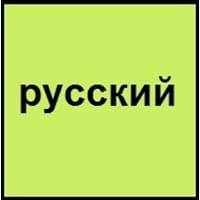Irish vs Russian
- In Irish language, there are no exact words for "yes" or "no".
- There are different set of numbers for counting humans and another set for counting non-humans in Irish Language.
- In Russian language, the words are not pronounced as they are written.
- In Russian language, there are only 200,000 words out of which only few words are used and due to this many words have more than one meaning.
Irish and Russian Language History
Comparison of Irish vs Russian language history gives us differences between origin of Irish and Russian language. History of Irish language states that this language originated in c. 750 whereas history of Russian language states that this language originated in 1000 AD. Family of the language also forms a part of history of that language. More on language families of these languages can be found out on Irish and Russian Language History.
Irish and Russian Greetings
People around the world use different languages to interact with each other. Even if we cannot communicate fluently in any language, it will always be beneficial to know about some of the common greetings or phrases from that language. This is where Irish and Russian greetings helps you to understand basic phrases in Irish and Russian language. Irish word for "Hello" is Dia dhuit or Russian word for "Thank You" is спасибо(spasibo). Find more of such common Irish Greetings and Russian Greetings. These greetings will help you to be more confident when conversing with natives that speak these languages.
Irish vs Russian Difficulty
The Irish vs Russian difficulty level basically depends on the number of Irish Alphabets and Russian Alphabets. Also the number of vowels and consonants in the language plays an important role in deciding the difficulty level of that language. The important points to be considered when we compare Irish and Russian are the origin, speaking countries, language family, different greetings, speaking population of these languages. Want to know in Irish and Russian, which language is harder to learn? Time required to learn Irish is 36 weeks while to learn Russian time required is 44 weeks.





